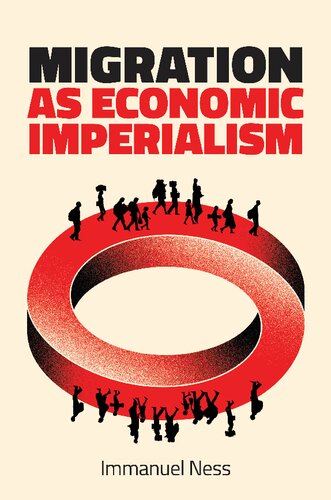

Most ebook files are in PDF format, so you can easily read them using various software such as Foxit Reader or directly on the Google Chrome browser.
Some ebook files are released by publishers in other formats such as .awz, .mobi, .epub, .fb2, etc. You may need to install specific software to read these formats on mobile/PC, such as Calibre.
Please read the tutorial at this link: https://ebookbell.com/faq
We offer FREE conversion to the popular formats you request; however, this may take some time. Therefore, right after payment, please email us, and we will try to provide the service as quickly as possible.
For some exceptional file formats or broken links (if any), please refrain from opening any disputes. Instead, email us first, and we will try to assist within a maximum of 6 hours.
EbookBell Team

0.0
0 reviewsFor several decades, wealthy states, international development agencies and multinational corporations have encouraged labour migration from the Global South to the Global North. As well as providing essential workers to support the transformation of advanced economies, the remittances that migrants send home have been touted as the most promising means of national development for poor and undeveloped countries.
As Immanuel Ness argues in this sharp corrective to conventional wisdom, temporary labour migration represents the most recent form of economic imperialism and global domination. A closer look at the economic and social evidence demonstrates that remittances deepen economic exploitation, unravel societal stability and significantly expand economic inequality between poor and rich societies. The book exposes the damaging political, economic and social effects of migration on origin countries in Africa, Asia and Latin America, and how border and security mechanisms control and marginalize low-wage migrant workers, especially women and youth. Ness asserts that remittances do not bring growth to poor countries but extend national dependence on the export of migrant workers, leading to warped and unequal development on the global periphery.
This expert take will be a valuable resource for students and scholars of migration and development across the social sciences.